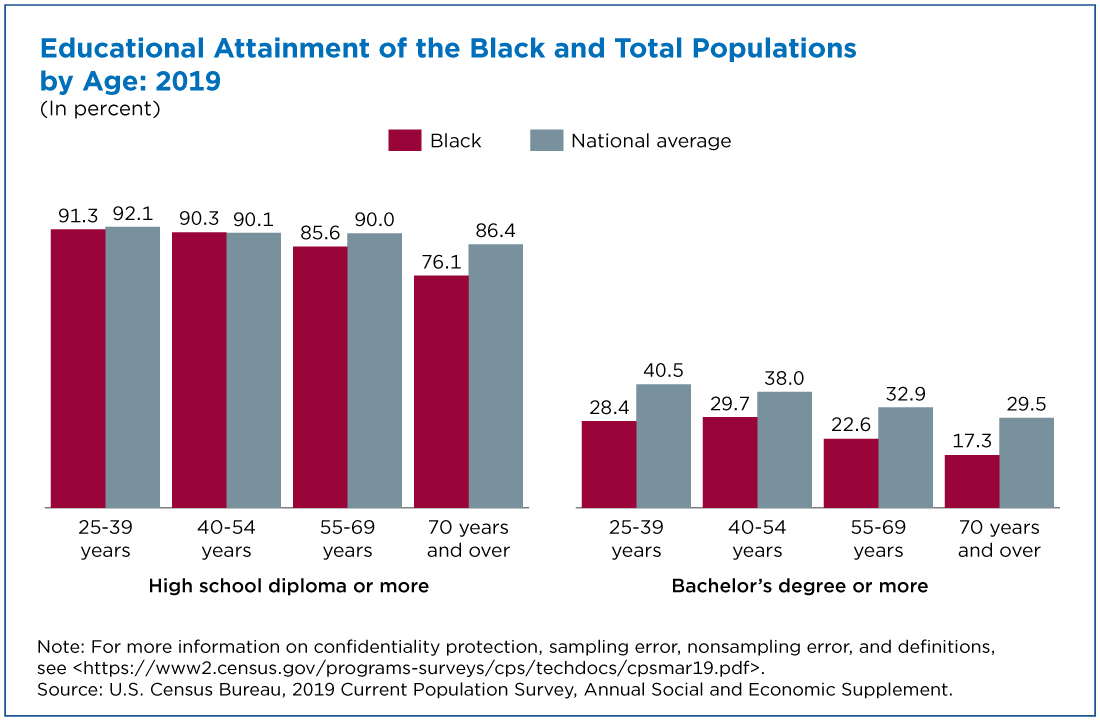Here are the answers to your questions in my opinion based on many facts.
First, we should examine the causes of wealth disparities. Black Americans are at a significant disadvantage relative to long term wealth which really impacts the statistic you are quoting. A large aspect of this stems from integration. Prior to integration, black business ownership was strong and substantial. There were massive issues with black access to housing however due to our nation being so racist. The challenge with integration is that it completely destroyed black wealth in America and our black population has never recovered. Instead of working to reinvigorate black ownership and wealth, we just said "Here, take this check from daddy government." The corrosive impact of this has been nothing short of devastating.
As a result, the gap between blacks and other demographic groups has been crazy. When we integrated, the country was still extremely racist. No whites were going to use black businesses but the reverse was not the case and as a result of lost business, black business ownership collapsed and billions in wealth was lost. It's never really recovered. This is a widely debated issue in the black community and a source of great resentment and I don't blame them one bit.
Over the past few years, there has been a huge debate as to whether or not integration has had a positive or negative impact on black people. On May 14, 1954, integration in schools began as a result of the Brown v. Board of Education decision. Although this did not completely end segregation...

theblackdetour.com
I humbly submit that we did not properly negotiate the terms of our integration. The pride that Dr. King’s father instilled in him has been lost

www.africanglobe.net
To avoid poverty, there are three critical factors. Graduate from high school, don't have a child out of wedlock and don't get married until after the age of 20. Only 8% of families that follow these three rules are poor. People to fail to do any one of these are part of a group of which 79% of its members are classified as poor. In the black community, 70% of children are born into single family households. That's a very hard obstacle to overcome. Likewise in the white, Asian and Hispanic communities, fatherlessness yields similar results.
Now we have seen a stable and good increase in the graduation rate in the black community. The younger population in the US have seen significant steps forward in terms of educational attainment.
FWIW, the average salary in Nigeria is equivalent to $13,500 per year in the United States. The average salary for black Americans is over $80,000
The average salary in Nigeria per month and per annum in Naira and US Dollars with calculation.

nigerianorator.com
So the systemic stuff you talk about really doesn't hold up. People come her and excel because of culture and ambition. Perhaps Nigerians do so well because they aren't told they are victims their entire lives and that no matter what they do, they won't be allowed to succeed? I suspect that helps a bit. Culture is everything.
All this is to say that the answer to your questions are complex. Whites have been owning businesses, controlling government and amassing wealth for a long time. Anything that interrupts this can cause significant disparities. A non-racial example of this would be North v. South after the Civil War. Southerners lost tremendous wealth and access to opportunity after the Civil War. That disparity is still there today and southern states are generally the poorest in the United States. Ironically enough, the gains that have been made in the black community allot for a significant portion of the wealth increase in the South.
We can't recover the wealth that was lost because of slavery. We can't recover all the wealth lost due to integration. In my view, the progress being made is significant and noteworthy. We have done away with a lot of the problems of the past and we are making progress. However, we can never make up for what has been lost due to the past. We can only forge a better future. I would argue culture is a big part of this and it isn't as though Asians have come to the United States without experiencing discrimination. Remember, we did have internment camps for Japanese Americans and the stains from WWII lasted for decades with respect to the Asian community. Prejudice, discrimination and disparate treatment among racial groups have marked all of history. Unfortunately, it's part of our humanity. It's something we'll always have to work to overcome. Government involvement in trying to balance the scales often produces horrible results. It certainly has in this area.









